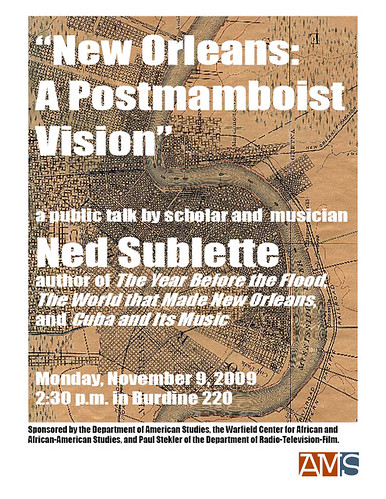We finally got the annual List's Books We're Reading This Year sent. I look forward more every year to reading what subscribers have to say about their reading. One of the reasons I love this annual list is that it isn't about the best books read this year, or the best books published this year, but about the books we read this year. Gotta say, the members of the List are remarkably literate in books and music!
Here's the final part of my List essay:
Shortly after reading A Rhetoric of Pleasure I read an unpublished article by this same writer-friend, "Streets of Gold: Travels Among the Appalachian Snake-Handlers." In his search for the significance and purpose of the religious sects of snake handlers in his native Kentucky, Johnson tracks several strands of the forces that formed the culture of this wide, mountainous region of the U.S. He describes Daniel Boone's euphoric experience of “going native” in the “howling wilderness” on the other side of the Cumberland Gap, which even provoked the Romantic giant, Lord Byron, to compose verse about that legendary figure of the classic American frontier.
Johnson’s article in turn reminded me of a book I'd long intended to read, Salvation on Sand Mountain: Snake Handling and Redemption in Southern Appalachia (1995) by Dennis Covington. Whereas Johnson's article focuses on the expansion of spirit and the sense of spiritual oneness with the grandeur of this natural world as one propellant in the making of the culture out of which emerged those who handle snakes in communion, Covington focuses on the narrowness of the snake handlers and their churches, and their sense of alienation from the rest of the country.
Covington draws a nuanced, detailed picture of a population that has been caricatured down through the time of Li’l Abner as moonshiners, crackers, rednecks, hoosiers, criminals, rebels against authority, or just plain illiterates. As he describes it, their behaviors and beliefs are part of a cultural identity passed through generations, from one migration to another, providing a sense of protection, purpose and stability for a people who have been poor for generations and who perceive the wider world as “hostile and outside,” one that holds them in contempt.
When snake handlers come together to celebrate in ecstatic spiritual practice, they can die from being bitten by the rattlesnakes, though not as often as they recover. They achieve ecstasy in the state that allows them to handle their snakes; their ecstasy translates to, and is shared with, the non-handling congregation. They experience further communion through singing. The risk the handler takes proves his courage, manhood, and faith. But when that moment is concluded, he’s back where he began, with it all to do over again, right down to finding a church to practice in. There is a recurring quest for one's own building to house one's congregation, which may be as small as a single family. Grand fund-raising schemes aren't feasible, and as ministers and members are generally poor, loans are not easy to get. Churches disappear frequently because of fire, repossession, inability to meet a mortgage. Further, the faithful trust and respect few outside their own circle, and often not even each other, or members of their own families. This leads inevitably to intra-rivalries, spouse stealing, congregation poaching, and sometimes armed combat or even murder.
Women may handle snakes, but they are forbidden to sermonize – women must always be below men and subject to men's will. The snake handling congregations seem to share this and much else with the pentecostal and evangelical prayer warriors we've heard so much of in the last decades, particularly the sense that each individual is under constant threat by witches and demons. They embody contradictions: deeply anti-intellectual they may be, but they may well know the entire Bible by heart; deeply anti-government, yet deeply patriotic. They are fond of their snakes, though whether they regard the snakes as embodying divinity, satan, or merely masculinity is not any more clear to them than to outsiders.
In Albion's Seed: Four British Folkways in America (1989), David Hackett Fischer views this same regional population historically, utilizing “an approach developed by the French school of the Annales begun by Georges Dumezil and developed further by Fernand Braudel that concentrates on both continuity and change over long periods of time.” Using primary source documents to track migration patterns, Fischer traces four regional US cultures back to specific regions of Britain:
1. East Anglia to Massachusetts: The Exodus of the English Puritans, 1629 - 41
2. The South of England to Virginia: Distressed Cavaliers and Indentured Servants 1642 - 75
3. North Midlands to the Delaware: The Friends Migration, 1675 – 1725
4. Borderlands to the Backcountry: The Flight from North Britain, 1717 – 1775
This latter migration, to the Appalachians and the backcountry of the south Atlantic states, is where the Churches of Signs and Snake-handling grew up.
Fischer examines the commonalities of the four British “folkways” with those in the four North American regions to which they migrated. Folkways, he explains, exist "in advanced civilization as well as in primitive societies. They are functioning systems of high complexity which have actually grown stronger rather than weaker in the modern world." These folkways determine everything from speech “ways” (“redneck” was long in use in the Borderlands region of Britain prior to emigration) to gender relationships, housing, attitudes toward literacy and authority, to what constitutes freedom, how children are raised, how food is prepared, how business is conducted, magic and religious systems (the two are not mutually exclusive), and many more. They are recognizable patterns in the organization of universal elements of any culture, unique enough to each that we can recognize patterns of one group of people as identifying them as different from others.
Covington's book, together with Fischer’s detailed folkways research of the backcountry settlers, imply a partial explanation for our enduring national allegiance to anti-intellectualism (Guardian Angels! Soulmates! Prayer Warriors to guard us from witches!), and the deliberate choice of lies over truth. Facts and truth contradict a hard won stability in an ever-changing world that means us no good. Along with the ability to work hard and survive extreme hardship, with loyalty to family and country, and deep love of music and poetry, this American irrationality is part of a persistent regional identity. That identity traveled to Appalachia and the southern Atlantic backcountry from Scotland's Highlands and the English northern Borderlands, a beautiful region of harsh climate, isolated, self-sufficient clans, and scant natural resources. There was little educational opportunity and less work, which made for deep generational poverty, while the brutalities of invasion, conquest and oppression imposed centuries' long instablilty.
This does not mean that individuals from this backcountry regional culture have not been wealthy and successful. Andrew Jackson, the “people's President” who led the crusade against the National Bank, claimed to have read only two books in his life, Goldsmith's The Vicar of Wakefield and the Bible. Though a lawyer, he declared "I cannot trust a man who can spell a word only one way." He was famous for fighting thirteen duels, most of them over his wife's honor, whom he “stole” from her abusive first husband, and lived with before their marriage could become legal. (Incidentally, Stiles’s The First Tycoon provides a fine description of Jackson's supporters, and why they made his crusade against the Bank successful). The baleful John C. Calhoun, stalwart advocate of the expansion of slavery who beat the drums for southern secession – though he died eleven years before the War of Southern Aggression -- is another famous backcountry folkways type. Tellingly, Jackson and Calhoun became enemies. Look at portraits of these two "tall, lean, sinewy" men, and their resemblance to each other is remarkable.
So here we are, starting 2010, and anti-intellectual Sarah Palin says it’s a “fair question” to ask whether Obama was born in the U.S. The climate isn't changing and if it is, human behavior has nothing to do with it, and the more you contradict us the more belligerent we become. The Jewish Holocaust didn't happen. Facts, logic and truth are what intellectuals who hate America think they can fool us with because we didn't go to a fancy school, but we're too smart – too American -- to fall for it.
I’m left with something an Appalachian woman pridefully stated in 1905, quoted in Albion's Seed: "We never let go of a belief once fixed in our minds.














